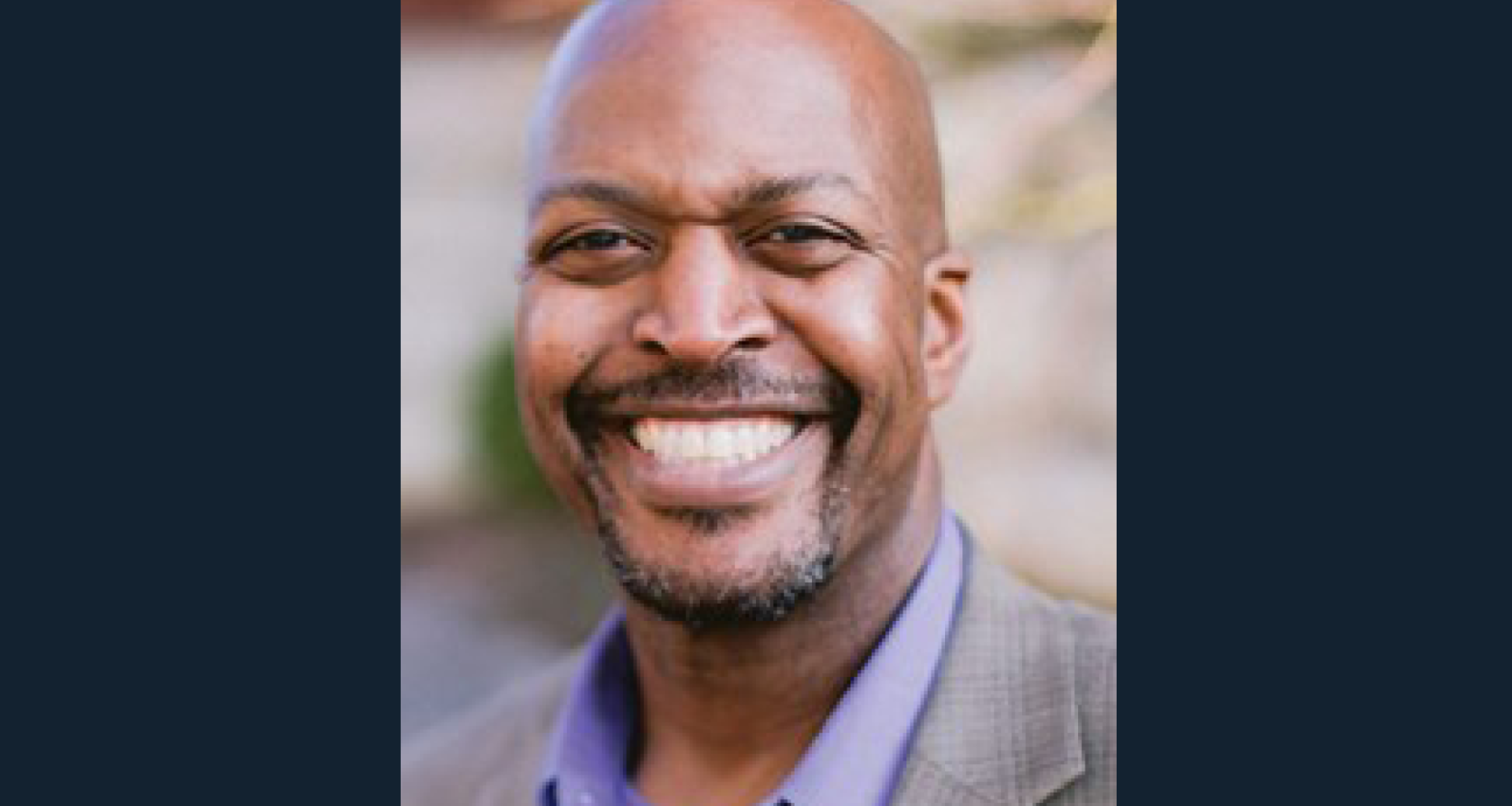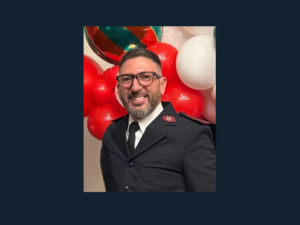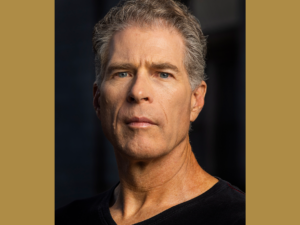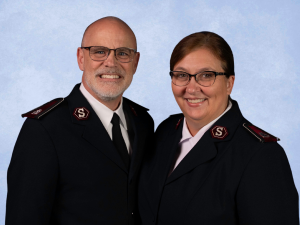Hope is what propels us through the uncertainty and chaos of our slumps and our challenges.
But in our broken, imperfect world, a lot of people are finding their peace is constantly under threat, and because of that, it’s harder to experience genuine hope for the future.
Irwyn Ince is a pastor, author and coordinator of Mission to North America for the Presbyterian Church in America. In his new book, “Hope Ain’t a Hustle: Persevering by Faith in a Wearying World,” he explores the true nature of hope and its transforming power.
Irwyn reminds us that true hope isn’t fleeting. It’s rooted in something much deeper: our faith in God and his promises.
Using the book of Hebrews as a framework, he shows us how to place our confidence in the finished work of Jesus and how that can change the way we think and live. He reminds us that even in—and especially in—the midst of suffering and disappointment, we can find hope and persevere.
This is a conversation about the source of true hope, the instructions for hopefulness we find in Hebrews, and the role community plays in our ability to sustain hope over time.
Show highlights include:
- Differentiating between hustle culture and true hope.
- How faith plays a central role in understanding and experiencing hope.
- The Book of Hebrews as a framework for exploring hope.
- How personal struggles and triumphs have shaped Irwyn Ince’s understanding of hope.
- Ways pastors can use the insights from “Hope Ain’t a Hustle” to minister to their congregations.
- The importance of action and involvement, and how they complement one another.
- The role of community and belongingness in sustaining hope.
- Strategies to incorporate hope into our daily lives and maintain it in the face of disappointment and setbacks.
- Where to start in seeking hope.
Listen and subscribe to the Do Gooders Podcast now. Below is a transcript of the episode, edited for readability. For more information on the people and ideas in the episode, see the links at the bottom of this post.
* * *
Irwyn Ince: I serve as the coordinator for Mission to North America for the Presbyterian Church in America. MNA, as it’s called, is essentially the domestic missions arm for our church. That is the movement of members outward facing neighbor love, as I like to say, how to engage communities around our churches with the love of Jesus and helping to equip our churches and leaders for that kind of engagement as well as planting new churches in the United States and Canada. So that’s in a nutshell the area of responsibility for me vocationally.
Christin Thieme: Irwyn, what is giving you hope recently?
Irwyn Ince: What is giving me hope recently? It’s really an interesting question. The reminder first that from my vantage point, at least biblically speaking, hope is not just wishful thinking. It’s not just kind of a loose wishful idea that things will get better or things will work out well. But it is a reminder that our hope is in a person. In Jesus. And so in the midst of this topsy-turvy world, the political season of the U.S., a reminder that Jesus is still on the throne, Jesus is still the king, and what I see working out particularly in the week-to-week, day-to-day engagement of many, many churches that are just striving to be faithful.
That is a constant source of a hopeful reminder for me because I get the privilege of seeing lots of our churches engaged in seeking to love neighbors, churches that are not captivated or that captured by the political polarization around stuff like immigration, but will say, how do we love neighbors if we have people who are part of an immigrant community around us? How do we actually engage well in a way that is loving and caring? And those are the things that are sources of hope for me.
Christin Thieme: Among everything that you have going on, you also recently released a new book and the title of it really caught my eye. We get a lot of books through our office, but the title of yours caught my eye with Hope Ain’t a Hustle. I think so often it’s almost this sense that you’re naive if you have hope, right? So why did you title it that way?
Irwyn Ince: I titled it that way specifically because of what you just described, this idea that I’m somewhat naive if I hold on to the hope that is put on display for me in the Bible, the hope that is found in Jesus Christ, the promise of God that he’s going to make all things new. I can sometimes, and even as Christians in particular, I can feel like maybe have I been sold a bill of goods? Have I been a little bamboozled here in this? I don’t seem to see things getting better. It seems to me in maybe some particular ways that things have gone from bad to worse. I titled it that way to remind us again that biblical hope is not based on the notion of steady progress and improvement.
Christin Thieme: It’s an important distinction.
Irwyn Ince: It is, yes, right, right, that we do believe in the promises of God. And we’re always looking out for how God is at work through his people in the world and knowing that he always is and having this sense of assurance that no, we haven’t been hustled at all. God is true to his promises.
Christin Thieme: You, in the book, you get into a differentiation between hustle culture and true hope. Can you elaborate a little bit on what is that distinction?
Irwyn Ince: So I use this example as a native New Yorker growing up in the city, you kind of get used to the hustle, right? So hustle in a couple of ways that, you know, the cynicism that comes from somebody’s always trying to push something on me. They’re always trying to sell me something that benefits them but not necessarily me. They wanna give me the idea that it will be beneficial to me, but it’s really mostly beneficial to them. That’s one aspect of the hustle.
The other aspect of the hustle is if I’m the hustler, if I’m the one that’s grinding, if I’m the one that’s saying, I just gotta do whatever I gotta do to make my way, to get ahead. I’ve just got to push. And the difference between that kind of culture and one that is based on biblical hope is that I get to actually rest.
Most of the biblical reference in the book comes from the letter to the Hebrews and in chapter four, where the writer talks about there yet remains a Sabbath rest for the people of God. This notion of yes, things can be disappointing and upsetting in this world and life, but you can live in a non-anxious way because you are able to rest in the Lord. It doesn’t mean you won’t have difficulties, hardships, face things that you don’t like, but those things are not things that need to be crushing because you have this peace in the Lord that takes you through. That’s the difference between thinking, I’ve got to grind, I’ve got to hustle, got to hustle, or be the victim of a hustle. And say, no, I can actually have a non-anxious approach to how I live.
Christin Thieme: Why did you choose the book of Hebrews as kind of a framework for exploring hope and maybe what are some of those key themes that resonate with how you understand hope?
Irwyn Ince: First, the book of Hebrews is most days my favorite, at least the New Testament book of the Bible. Some days, some days it’s my favorite book of the Bible altogether. But the life circumstance and context as we understand it, for the recipients of this letter is they are suffering, they are enduring hardship and persecution for following Jesus as Lord. And we get these clues throughout the letter that they’re wondering, is it worth it? Is it worth it to persevere?
Over and over again, you’ll hear the author say things like, “Hold fast your confidence all the way to the end.” “Hold,” he says to them in chapter two, “Hold onto your hope, all the way to the end.”
It’s interesting, he doesn’t say the assurance of your faith, but the assurance of your hope all the way to the end. So he wants them to persevere. He says to them in chapter 10, “You have a need of endurance so that after you’ve done the will of God, you may receive what is promised.”
For me, there are lots of places I could have done a trace of God’s people being called to a hopefulness throughout the pages of Scripture. But I settled here because it’s one particular community and we see what the temptation is. The temptation is they want to try to take the pressure off to get the pressure released so they’re being tempted to go back under the rules and the regulations of old covenant religion that was acceptable in that time. Their pastor has to say, “no, no, no, don’t you understand? Things have changed now that Jesus has come. You have not believed a lie. He is who he says he was.” He will, as he says in chapter 15, “he will never leave you nor forsake you.”
And so it really, for me, became a helpful way to not just trace it through the arc of Scripture but a particular book and see how this theme of persevering all the way to the end is worked out in the Letter to the Hebrews.
Christin Thieme: As they face so many of those challenges and the temptations and the persecution and so on, what’s a lesson that you think we can draw on from how they responded to some of those that fits today to some of the challenges we might be facing?
Irwyn Ince: It’s really interesting in the sense that I don’t know explicitly, I don’t have the clues explicitly on how they responded to it. What the clues we have, which is really, I think, applicable for us, is the confidence of the writer that they will respond in a positive way.
Every time there is this dire warning, watch out, take care that you don’t give up on this, the next statement is always something like, we are convinced of better things, concerned, when you’re concerned. You’ve already demonstrated in the past your ability to endure through hardships when he says you accepted the plundering, chapter 10, the plundering of your property because you aligned yourself with those who had been imprisoned.
So a very real application, I think, for us today is this sense of confidence we can have when we look back, especially if we have been on this journey of faith for any length of time, there’s a very strong likelihood that we’ve had to endure some challenge and difficulty in the faith. And so we can always look back and see, well, the Lord brought me through then. It seems to be a little bit harder now, but the same Lord who kept me then will keep me now.
We can have the same confidence that the writer has around his community that they will persevere, they assure of better things when they’re concerned, that they won’t fall away.
Christin Thieme: I think sometimes it can be easy for those of us who aren’t pastors to say, well, Irwyn, this is nice, but you’re a pastor. You have this all figured out. This is easy for you. So on your journey, I’m wondering, is there a moment, a struggle, a triumph that has helped to really shape your personal understanding of hope?
Irwyn Ince: It’s a really interesting question. Absolutely. Well, there are a few things that come to mind. Let me just even talk about this call to be a pastor. This is not something that I desired or ever saw for my life.
And particularly in the sense of call, My heart and my heartbeat for the church is that, I use the phrase beautiful community, that the church should be striving to reflect its community and all of its diversity. That Jesus is a reconciler, that he reconciles us, he brings us together into a family across all kinds of lines of difference, whether that be ethnic, national, cultural, socioeconomic, generational ability, disability. He brings us together into family, his family, the house of God, the Bible calls it. And here’s where the challenge is to try to pursue that.
It is seemingly much easier to go for homogeneous community, to try to pursue the faith in a way that says, like attracts like. And I have had moments of, let me just say, deep discouragement in the seeming difficulty of seeing the church grow in this kind of depth of neighbor love across lines of deep division and difference.
One of the reasons I still have the passion and still pursue it is because at particular points in time, the Lord let me get glimpses of his work and seeing it and me recognizing, oh that’s actually the point. I can’t do this—I don’t have enough wisdom, I don’t have enough love. All of my strategies are not strong enough to create this. I have to actually live a life of dependence on God if this is gonna come to fruition. And I actually have to accept, not just accept, but be pleased to rejoice over how the Lord chooses to do it.
I could have a vision, I vision in my mind, this is the kind of Christian community I wanna be a part of. But I’m not in control of how that community gets formed. Going through those moments and having to learn and relearn that lesson time and again.
Christin Thieme: Yeah, the relearning, right? It’s never one and done.
Irwyn Ince: That’s right. That’d be nice. I wish. yeah, I got that down. I don’t need that lesson anymore.
Christin Thieme: Right. That’d be nice. So obviously the book really emphasizes hope, but it also addresses the importance of action and involvement as part of that. How do you balance these two elements and how do they complement one another?
Irwyn Ince: When I said that hope is not just wishful thinking, but our hope really is an embodied reality in the Lord Jesus Christ. So if that’s the case, we have to look and say, well, Jesus is our hope. Jesus didn’t stay in heaven with God, enjoying his communion and fellowship as Father, Son, Holy Spirit. He moved, He acted for our benefit and for our blessing, for our redemption.
So in the same way, our hope, empowered by this same Lord, our hope moves us to act. It moves us to acts of love. It moves us to acts of kindness. It moves us to acts of sacrifice that de-centers ourselves and seeks to bless others.
And there are all kinds of ways that that shows there’s not one particular way or particular action, right, that we say, this is how it looks. It looks as diverse as God’s people are, is the diversity of ways in which we can act to show the outworking of our hope, to show up in communities, to show up demonstrating God’s love, and to really actually be prayerful.
I think this is an important point, to be prayerful in our various contexts for the Lord to actually lead us and say, What do these actions need to look like for us here? What are actually the needs in this community? Where actually does the brokenness show up that only the hope of the gospel can bring some light and healing to and pursue that?
Christin Thieme: As sort of a continuation of that, we know from Hebrews that the early Christians relied heavily on one another for support and encouragement. And so it’s not just having hope, it’s not just acting, but also supporting each other. What role do you think community and belongingness play in sustaining hope?
Irwyn Ince: It is the crucial role. I mean, there is a reason why we find this admonition in the letter to the Hebrews, where says, us not forsake the gathering of ourselves together, as is the habit of some. That some people respond to the difficulty by separating themselves from the community. They simply kind of go off on their own.
All the admonitions and all of the encouragements in the letter to the Hebrews are plural. It’s always let us since we are surrounded by so great a cloud of witnesses, he says in chapter 12, Let us lay aside every weight and sin that clings so closely. Let us, he says, run with endurance the race set before us. You will not find any notion that this is an individual, isolated Christian pursuit. It is about the community. The expectation is actually we do this together.
The expectation is, the only way for us to be able to persevere is together. You know, you won’t make it if you isolate yourself. So one of the things I try to remember and try to encourage people is that the response to difficulty is to double down on community.
The response to hardship is to go deeper into community, to go deeper into the community of faith. It is a tactic of our enemy to make us feel like we have to isolate ourselves. I’m not gonna experience it with people, they’re not gonna understand what I’m dealing with, I’m going through. Let me go off on my own. That is a tactic of our enemy so that he can just do his destructive work by segregating you off from the community.
Christin Thieme: Yeah, it’s such an important point. I think everybody has faced that feeling at one point or another in some way. I’m on my own here. It’s easy to have hope and feel hopeful when everything is going well, when our heads are above water, so to speak. Is there anything else you would point people to when we are facing disappointment or setbacks in some way?
Irwyn Ince: Yes, the other thing I would say is that this is normal. It is not abnormal to face doubts about our faith when difficulties arise, to wonder whether or not we’re going to make it, to say, to even wonder, is God somehow punishing me? What I want to say is that those things are not abnormal to the experience of Christians. So have grace with yourself when you’re struggling and remember the gospel.
Remember the gospel, remember those words Paul says in Romans 8, there is no condemnation for all those who are in Christ Jesus. And so, because of Christ, God doesn’t condemn me, why would I be condemning myself? So remembering what you’re going through is not somehow outside of the norm for the life of faith in Jesus.
Christin Thieme: Since your book has come out, what has been most surprising or even gratifying to you given the response to the book and what are you hoping that the impact will be?
Irwyn Ince: Well, this is my second book, and one of the senior editors at InterVarsity Press, Al Shi, they give you these videos to watch before your book is published, you know? And so I just remember from before my first book, watching this, and it just stuck with me where he says, every book is not for everyone, but there’s someone for every book.
Christin Thieme: Hmm, I like that.
Irwyn Ince: God is going to find the space he wants to find for what you write to be a blessing. And so you never know how people are going to respond. I have been delighted by the response that I’m getting in this sense, that it really is something that people are finding helpful and needed. That it strikes a chord because there is…I won’t say a crisis of hope per se, but in this current milieu, particularly in the United States and other parts of the West where there’s all this political polarization, all of this upheaval, all this, declined in the stats of people attending church and church membership and people, and a reminder of our hope that that enables us to persevere has really struck a positive chord with those who’ve given me feedback when I’ve had opportunity to speak on the book and hear from people.
Christin Thieme: What are you hoping the impact?
Irwyn Ince: My heart is always to help turn people’s focus on God’s Word, that people would read what I wrote and be more motivated to go deeper into God’s Word. I try to write for the thoughtful Christian. The Christian who really wants to engage what God says. My hope is that as people read the response will be how wonderful God is and how much He leads and guides and helps us through His Word. Not so much my words, but God’s Word.
Christin Thieme: You’ve given us a lot of things to think about and even tactics to pursue. I’m wondering as a final question for you, specifically to the person who is seeking more hope in their lives and just doesn’t know where to start, what would be your encouragement today?
Irwyn Ince: It really is specific to some things I’ve already said. I would put high on the list, are you a part of a healthy Christian community? If you are not, I would strive to make that a priority. Find a community of faith in the Lord that believes his Word, that proclaims his Word, that seeks to love the Lord and love you, where you can love and be loved and be challenged by what God says in his Word. So I would put that very high on the list.
Connected to that is, again, immersing ourselves more deeply in his Word. I believe in getting help wherever we can get it in terms of professional help, depending on people’s issues, counseling and therapy.. My point in this specific point is that God speaks to us through his Word. It is as the writer says in Hebrews chapter four, the Word of God is living and active, sharper than any double-edged sword. It pierces to the division of soul and spirit, joints and marrow, discerning the thoughts and the intentions of the heart.
God is still speaking. He still speaks through his word. It is living. And so we would do well to seek his voice in his Word.
So those are two particular things that I think are absolutely crucial for us. It’s things that I double down on in my own struggles.
Additional resources:
- Read “Hope Ain’t a Hustle: Persevering by Faith in a Wearying World” (IVP, 2024) by Irwyn Ince.
- If you are one of the hopefuls, get on the list for the Do Good Digest, our free 3-minute weekly email newsletter used by more than 20,000 hopefuls like you for a quick pick-me-up in a busy day.
- If you are enjoying this show and want to support it, leave a rating and review wherever you listen to help new listeners hit play for the first time with more confidence.
- If you want to help The Salvation Army serve more than 24 million Americans in need each year, give today. Your gift of money, goods or time helps The Salvation Army do good all year in your community.
Listen and subscribe to the Do Gooders Podcast now.












